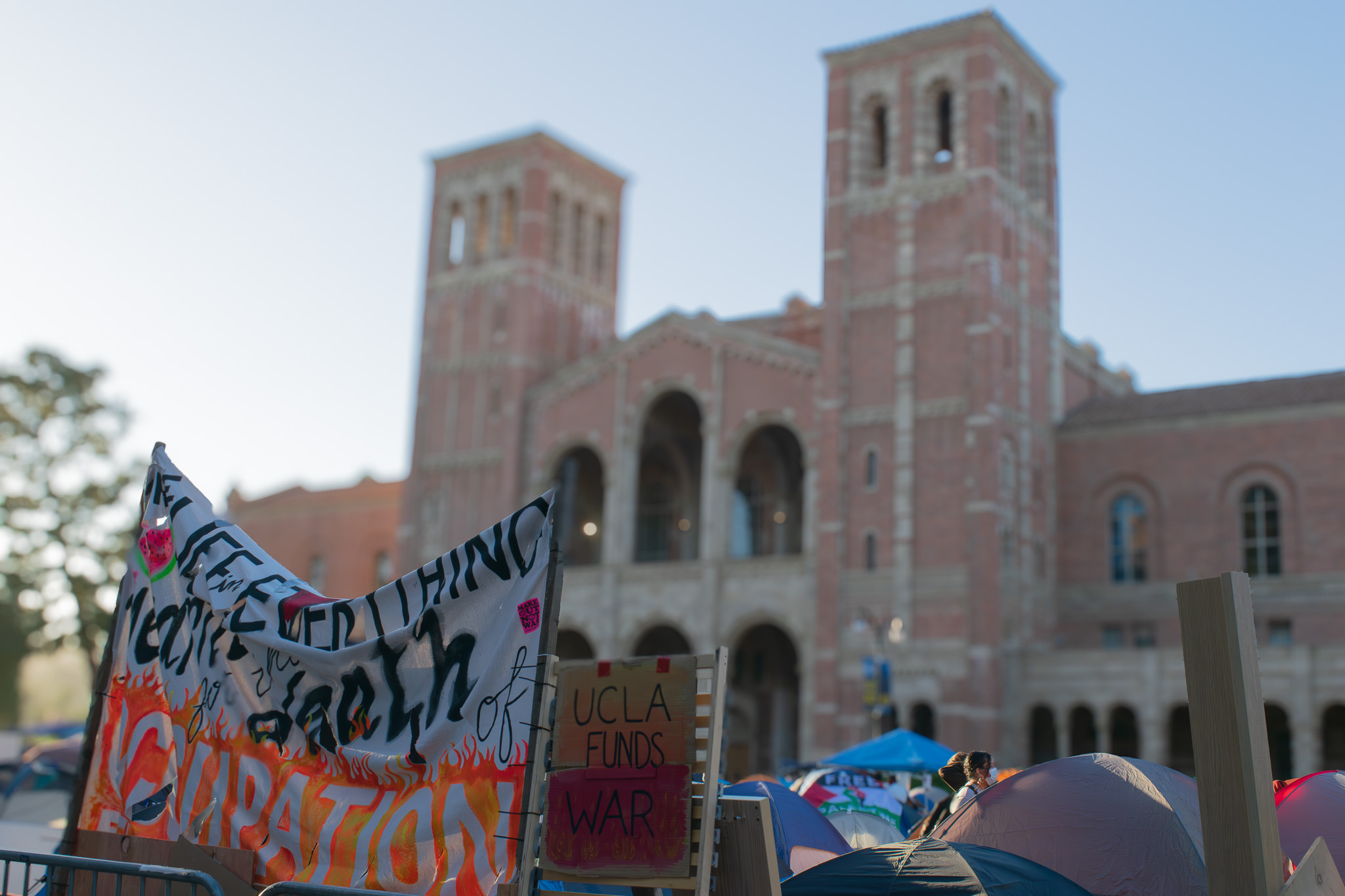The University of California at Los Angeles (UCLA) announced on Tuesday that it has reached a settlement agreement in a lawsuit brought by a Jewish faculty member and students. The initial complaint, filed in June 2024, claimed that Jewish students were unlawfully prevented from “accessing the heart of campus,” including classroom buildings and the main library. Pro-Palestinian protestors were said to have issued wristbands or other forms of identification solely to people who were loyal to their cause, thereby excluding any dissenters. Plaintiff Yitzchok Frankel, a second-year law student, said that he could not “disavow his connection to Israel” in order to pass through the encampment. The lawsuit detailed allegations of violations of the Equal Protection Clause, the Free Exercise Clause, and the freedom of speech.
The settlement states that the university will pay a total of $6,450,000, with $6,130,000 dedicated as the “Plaintiffs Payment.” Each of the four plaintiffs is set to receive $50,000, and $2,330,000 is allocated for “charitable contributions” to nonprofit entities to combat antisemitism. The rest of the money is designated for attorneys’ fees and costs.
The parties stated that they were “pleased with the terms of today’s settlement” and that it “demonstrate[s] real progress in the fight against antisemitism.” The settlement and lawsuit more broadly speak to the ongoing tensions between the government, universities, and Israel-Palestine War protestors.
Last August, Judge Mark Scarsi granted the plaintiffs’ motion for a preliminary injunction. First, he found that the plaintiffs had standing to sue the university. On the issue of the likelihood of imminent injury, the court held that there was no guarantee that Jewish students may not be “excluded from UCLA’s ordinarily available programs, activities, and campus areas based on their sincerely religious beliefs should exclusionary encampments return.” In other words, there remained an “imminent risk that such exclusion” would return to campus in the coming fall. Second, the court found that the plaintiffs’ injuries were a result of UCLA’s provision of programs, activities, and campus areas–with the knowledge that some students were being excluded from those programs.
On the legal merits, Judge Scarsi ruled that a preliminary injunction was appropriate because, absent one, the plaintiffs were “likely to suffer an irreparable injury.” The injunction “require[d] only that, if any part of UCLA’s ordinarily available programs, activities, and campus areas become unavailable to certain Jewish students, UCLA must stop providing those ordinarily available programs, activities, and campus areas to any students.”


